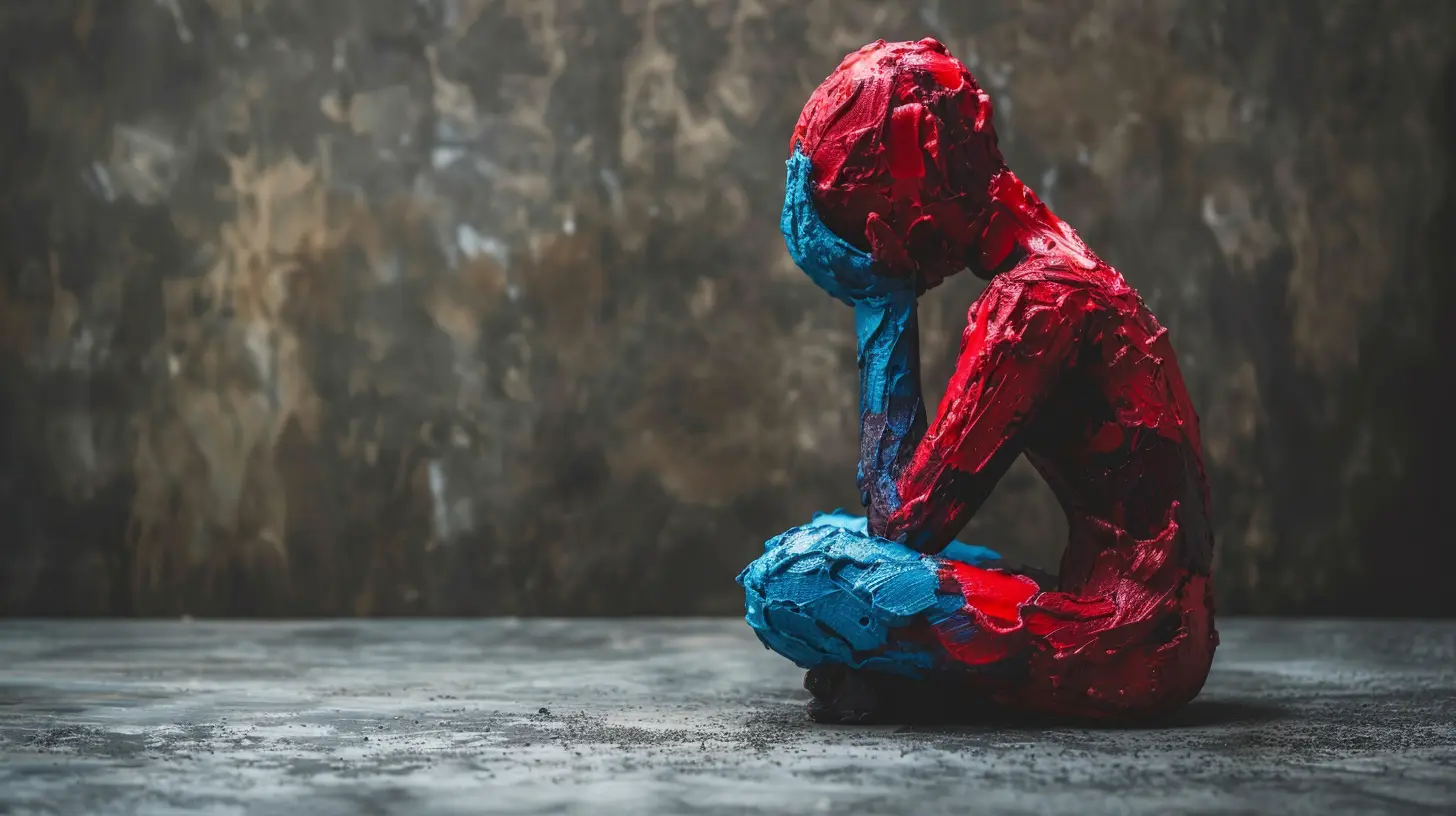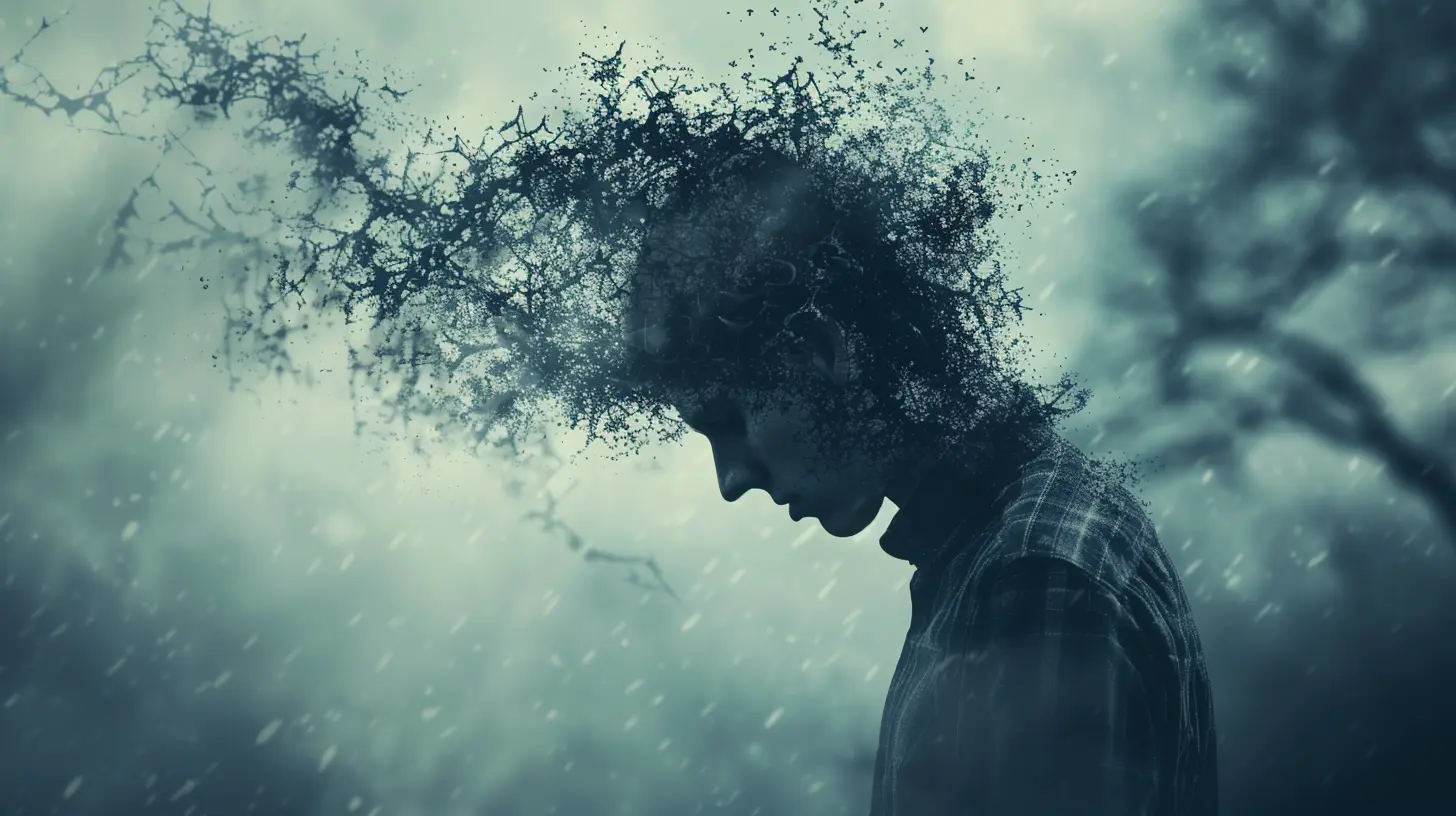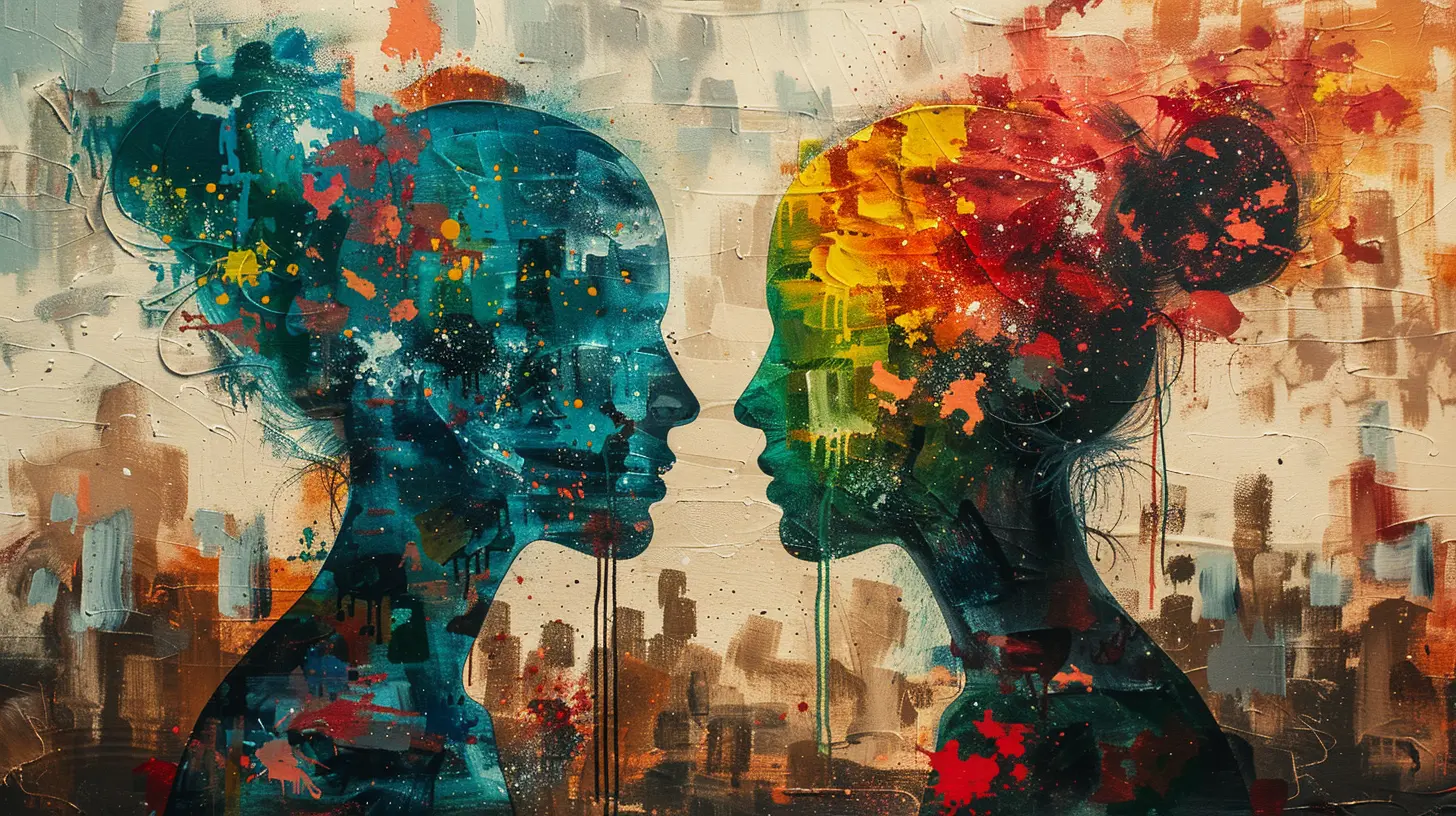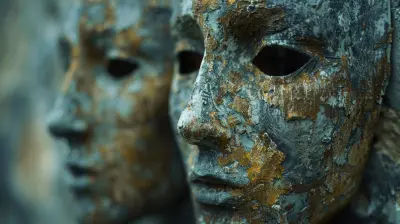Co-Occurring Disorders: Understanding the Link Between Mental Health and Addiction
23 November 2025
Let’s be real for a second—life is hard. Like, “trying-to-put-on-your-jeans-straight-out-of-the-dryer” hard. And for some people, just dealing with the ups and downs of daily life feels like trying to juggle flaming swords while riding a unicycle. Now imagine someone trying to do that while also dealing with two very real struggles: mental health issues and addiction. That’s what co-occurring disorders are, and trust me, it’s not just a fancy psychology term—it’s a very real, very complex, and very misunderstood situation that affects millions.
So grab your coffee (or tea, or kombucha, or whatever you fancy), settle in, and let’s untangle the web of co-occurring disorders—without the jargon-y mumbo jumbo.
What Are Co-Occurring Disorders Anyway?
Let’s start with the basics. Co-occurring disorders (also called dual diagnosis) happen when someone experiences both a mental health disorder and a substance use disorder. And nope, this isn't like ordering a combo meal from your favorite fast food joint—it’s far messier and way less satisfying.For example, someone struggling with depression might also be battling alcohol addiction. Or a person with anxiety might be using stimulants like cocaine or meth to cope. These aren't rare cases—they’re more common than you think.
According to some pretty legit data (hello, SAMHSA), millions of adults in the U.S. have co-occurring disorders. Yet, only a tiny slice of that group gets proper treatment for both issues. Why? Great question. It's complicated.
Chicken or Egg: Which Comes First?
Here’s the classic head-scratcher: does mental illness lead to addiction, or does addiction lead to mental illness?The answer is... yes.
That’s right—it can go either way, and sometimes both ways at once. It’s like asking if tacos taste better on Tuesdays or Fridays. The answer depends on a lot of stuff.
Scenario 1: Mental Illness Leads to Substance Use
Let’s say someone has undiagnosed anxiety. They don’t like feeling like their heart's trying to moonwalk out of their chest in public. So they start drinking to calm the nerves, and bam—alcohol becomes a crutch. Over time, the brain adapts (sneaky little thing), and now they’re dealing with addiction and anxiety on steroids.Scenario 2: Substance Use Triggers Mental Illness
Now flip it. Somebody starts using drugs recreationally—maybe just to “have a good time” or “take the edge off.” Over time, their brain chemistry gets thrown off balance. Suddenly they’re anxious, paranoid, depressed, or even hallucinating. Now we’ve got a mental health firestorm where there used to just be fireworks.Scenario 3: The Dynamic Duo
Sometimes, both conditions develop independently but hook up like an old high-school couple at their reunion. And once they’re together, they feed off each other in a chaotic cycle that’s hard to break.
Why Is Treating Co-Occurring Disorders So Darn Tricky?
Imagine trying to fix a leaky roof while your house is on fire. You’ve got two major problems, and focusing on one while ignoring the other doesn’t make the whole situation better—it makes it worse.Treating co-occurring disorders is complicated because most traditional approaches treat either the mental illness or the addiction, not both. And guess what? That’s like trying to patch only one tire on a car with four flats. You’re not going anywhere fast.
The Big Mistake: Treating Them Separately
Historically, mental health and addiction treatment were totally separate. Different clinics, different professionals, different bills (yay, healthcare!). But this approach often led people to fall through the cracks. Someone might get help for their depression but still be drinking daily to cope. Or vice versa—they go to rehab but no one addresses the underlying PTSD that’s fueling the addiction.It’s like putting a Band-Aid on a broken leg. Looks nice. Totally useless.
The Domino Effect: How One Disorder Fuels the Other
When someone has co-occurring disorders, each condition ramps up the other. Think of it like emotional dominoes—once one falls, the rest follow unless you step in with the right help.- Depression + Alcohol: Depression makes someone feel hopeless, so they drink. Drinking makes the depression worse. Rinse and repeat.
- Anxiety + Cannabis: Weed seems to help initially, but over time, it can increase anxiety and even cause panic attacks. Surprise!
- PTSD + Opioids: Trauma survivors may take opioids to numb emotional pain, but long-term use just deepens emotional and physical dependency.
Integrated Treatment: Two Birds, One Brain
So, what actually works for co-occurring disorders? The magic phrase here is integrated treatment. This fancy term just means treating both the mental health issue and the addiction at the same time, under one roof, by one team.What Does Integrated Treatment Look Like?
Good question! It usually involves:- Therapy: Like cognitive behavioral therapy (CBT), which helps people rewire negative thought patterns.
- Medication: For both mental health conditions (like antidepressants) and addiction (like Suboxone or methadone).
- Support Groups: Think AA or NA, but also mental health-focused groups like SMART Recovery.
- Case Management: Help with housing, jobs, and life stuff that’s hard when your brain and body are both exhausted.
It’s holistic, it’s coordinated, and—most importantly—it actually works.
Getting Help: Where Do You Start?
Okay, confession time: navigating the world of mental health and addiction help can feel like trying to find a needle in a haystack… while blindfolded. But we gotta start somewhere.Step 1: Go to a Pro
Whether it’s your family doctor, a therapist, or a mental health clinic, tell someone what's going on. Be honest. They can guide you to the right resources and help figure out what’s really happening.Step 2: Ask About Dual Diagnosis Services
Not all treatment centers are created equal. Look specifically for places that treat co-occurring disorders. This isn’t the time for one-size-fits-all therapy.Step 3: Get Support from Your People
You don’t have to carry this burden solo. Open up to people you trust. Friends, family, your dog (okay maybe not your dog, but you get it). Connection helps you stay grounded when things get messy.Real Talk: The Stigma Needs to Go
One of the biggest reasons people don’t get help? Stigma. Yup, society still acts weird about mental health and addiction. People are out here thinking that if someone just “tried harder” or “thought more positively,” they wouldn’t be addicted or depressed.That’s like telling someone with a broken leg to “walk it off.” It’s not just unhelpful—it’s harmful.
Mental illness and addiction are brain-based, medical conditions. Period. They deserve compassion, not judgment. Let’s all agree to sprinkle kindness like confetti and stop being weird about it.
The Bright Side: Recovery Is Totally Possible
Now here’s the good news: people recover from co-occurring disorders every single day. Yes, it’s a winding, bumpy road. Yes, there will be setbacks. But with the right treatment and support, it’s absolutely doable.You’re not broken. Your brain’s just been running a marathon through a thunderstorm while juggling chainsaws. And now it’s time to give it the care, tools, and rest it needs.
Final Thoughts: You’re Not Alone in This
If you or someone you love is dealing with the double whammy of mental illness and addiction, don’t let the shame monster win. Co-occurring disorders are common, treatable, and nothing to be embarrassed about.The road to recovery might feel like climbing Everest in flip-flops some days, but trust me—there are sherpas out there ready to guide you. You just have to reach out.
So go ahead. Ask for help. Be honest. Lean on your people. And if no one’s told you today—you’re doing your best, and that’s enough.
all images in this post were generated using AI tools
Category:
AddictionAuthor:

Gloria McVicar
Discussion
rate this article
1 comments
Georgia Rosales
Great insights into complex challenges!
November 24, 2025 at 3:47 PM

Gloria McVicar
Thank you! I'm glad you found it insightful.


